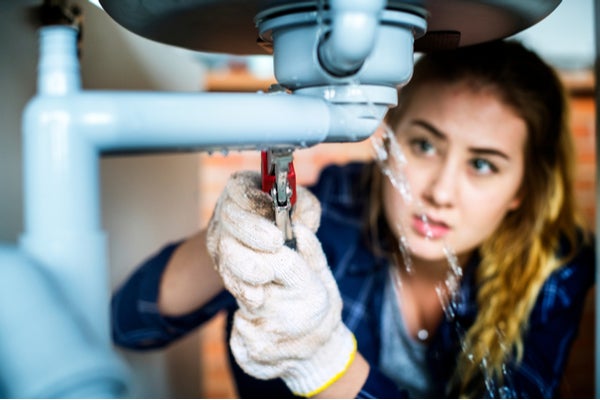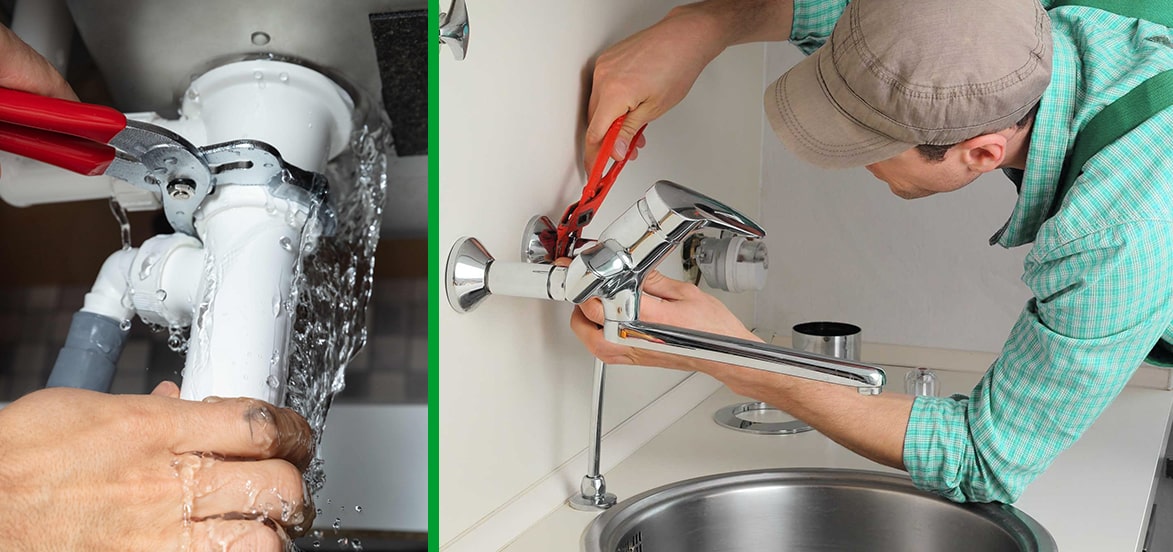Six Critical Things To Avoid To Protect Your Plumbing Systems
Six Critical Things To Avoid To Protect Your Plumbing Systems
Blog Article
Just how do you really feel when it comes to Leak Detection and Repair Without Destroying Your Home?

The trick to durable appliances, unsurprisingly, is proper maintenance. There's no hard and fast policy that can assure your plumbing appliances a long wear, but you can prevent unnecessary damage and repair work by avoiding bad plumbing habits.
You should stop doing these 6 points else you'll maintain calling your plumber over for minor faults.
Purging whatever
Yes, your bathroom drain leads to the sewage systems, however that doesn't mean you need to discard just anything down the drain. Several 'flushable' materials are actually great obstruction beginners, for example dental floss. Asides maintaining obvious non-flushable materials like cords and plastics out of your bathroom, you need to also prevent flushing cotton swab, menstruation products, wipes, daipers and condoms down the bathroom drainpipe.
DIYing every little thing
With plumbing, a stitch in time really does save nine. You can avoid a fullblown plumbing emergency by calling your plumber at the correct time.
You might have found out a couple of plumbing hacks from your papa, yet you should certainly recognize where to draw the line and also call a specialist. For example, you might be able to deal with a blockage yourself, but you should not try to alter a pipe. You might inequality pipes or overtighten a bolt, creating more injury and damages than you assumed. Calling a plumber is a risk-free as well as budget-friendly decision.
Using too much drainpipe cleaner
Making use of a drainpipe cleaner more than once or twice a month is an indicator that something significant is going on within your pipes. Currently, rather than facing the major problem, you opt for a quick fix; a carbonated drain cleaner. Rightfully, a drainpipe cleaner will deal with the clog, yet at what cost?
The chemicals in a drainpipe cleaner can speed up the deterioration of your pipes. Include that to whatever underlying problem is triggering the obstruction and you may need to a serious issue on your hands.
If you experience way too many clogs, call your emergency plumber rather than utilizing a drainpipe cleaner.
Putting oil in the sink
We understand effectively getting rid of grease after a hearty meal is a pain. However just pouring it down the tubes can do long-lasting damage to your pipes. "The fat and grease can obstruct your drainpipe severely enough to force you to call a plumber," explains Dawson. "Plumbing functions best when it's well looked after-- not abused with oil."
Not altering your dishwasher tubes
One very easy method to guarantee that you utilize your dish washer for many years is to change the tube at least as soon as in 5 years. This likewise looks for washing maker tubes.
With time, food bits, soap and grease can develop blockages within your pipes. Replacing them on time will certainly stop any presure accumulate that can harm the internal workings of your dish washer or washing machine.
An enhanced steel braided tube does a wonderful job of lengthening your machine's usage time.
No winter months safety measures
Severe weather conditions misbehave for your pipelines, especially if they're made of steel. You must shield your exposed pipes, as well as your water storage tank, even if you have a hot water heater. You need to additionally turn off your garden hose valve and any other external water channels. These channels are outlets for cold; you pipes can begin to ice up from outdoors if you do not.
Prevent Water Damage from Plumbing and Appliances
Prevent toilet failure
Be patient after you flush and wait for the valve to completely finish refilling the tank and bowl. If an overflow looks imminent, lift off the tank cover and lift the float to shut off water flow to the tank, and then turn off the supply valve.
Twice a year, inspect a toilet’s components, such as the fill, supply, and flush valves, and the supply line. Make sure you can turn off the supply. If you have older screw type valves that are hard to turn or start leaking, consider replacing them with simpler ball valves that are easy to shut off quickly.
Inspect and maintain your water heater
Inspect your anode rod every two years, or every year once the warranty has expired, to determine if it needs to be replaced.
Flush water heater tanks every six months to remove sediment by attaching a garden hose to the valve at the base. For safety, first turn off the power and run hot water until it is cool.
Get an annual inspection from a plumbing professional including the shut-off valve and all piping. Signs of broken valves and loose or wet joints and rust are a sign that more severe damage is coming.
Maintain washing machine supply lines
Look for signs the supply hose may be ready to fail—blisters in the hose, worn tubing, stress cracks, or a loose connection.
Replace the supply hose with a reinforced steel braided hose if it shows any sign of wear.
Tighten the connection if it feels loose. The most common site of failure is near the connection where the hose bends.
Replace supply hoses every five years, even if there is no obvious deterioration or wear. Some signs of deterioration may occur from the inside out and may not be visible until it is too late. When replacing washing machine supply hoses, always choose a reinforced steel braided hose over the traditional un-reinforced rubber hose. These hoses will last longer and are far less likely to result in a catastrophic water loss.
Prevent plumbing failure
Never pour grease down the drain.
Plant trees away from lateral drain lines to prevent roots from damaging piping.
If your home’s sewer system is connected to the city’s sewer system—a particular problem for older homes—or if you are located downhill or below street level, contact a plumbing professional to install a backflow prevention assembly into your sewer system.
Call a professional if you notice signs of a plumbing problem—an increased monthly water bill, banging pipes, rust stains, moisture in the walls or on the floor, and signs of wet soil erosion near the foundation.
https://disastersafety.org/maintenance/prevent-water-damage-from-plumbing-and-appliances/

I ran across that write up on Can Hard Water Ruin Your Appliances? when doing a search on the web. For those who liked our blog entry please make sure you remember to pass it around. I truly appreciate reading our article about Can Hard Water Ruin Your Appliances?.
More Details Report this page